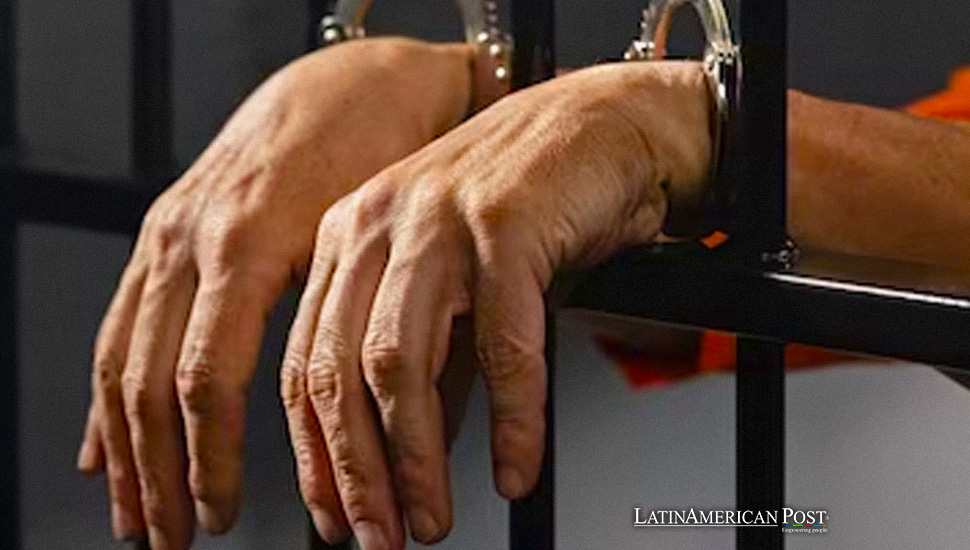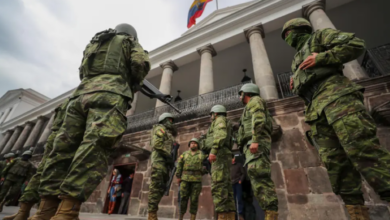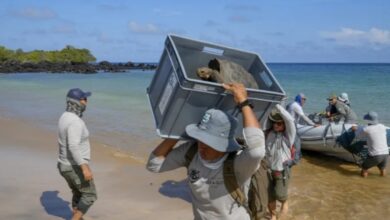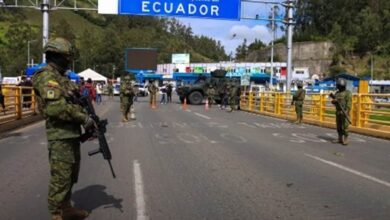Ecuador’s Struggle with Prison Violence Addressed by Noboa’s Firm Stance Against Human Rights Criticism

Amid escalating prison violence and criminal control, Ecuador’s President Daniel Noboa backs the police and military, dismissing “anti-patriotic” human rights violation claims. This strong stance highlights Ecuador’s intense battle against organized crime amidst broader Latin American efforts to confront similar challenges.
President Noboa Backs Security Forces Amidst Controversy
In a bold declaration of support for his nation’s security forces, Ecuadorian President Daniel Noboa has firmly stood by the police and military amidst allegations of human rights abuses during operations in prisons dominated by criminal gangs. This controversy sheds light on the broader struggle within Latin America to maintain order and protect human rights amid rampant violence and the influence of organized crime.
Ecuador, a country marked by its stunning landscapes and rich cultural heritage, is at a critical juncture. President Noboa’s recent address at the Eloy Alfaro airport in Manta not only praised the relentless efforts of the security forces in their “war” against organized crime but also positioned Ecuador in what he described as “one of the toughest battles in its history.” According to Noboa, this battle is not just about restoring peace but defending the nation’s honor against those who accuse it of human rights violations.
This situation is not unique to Ecuador. Across Latin America, countries grapple with the challenge of controlling criminal organizations while respecting human rights. From Mexico’s war against drug cartels to Brazil’s favela pacification efforts, the region has long struggled with balancing aggressive law enforcement tactics against the backdrop of legal and ethical standards.
Ecuador’s recent initiative mirrors these broader regional efforts but stands out for its immediate and controversial impact on human rights discourse. A judge’s order for the national ombudsman to investigate alleged torture by military personnel in prisons underscores the tension between maintaining security and upholding human rights. This directive, coupled with demands for uninterrupted medical care for inmates and respect for their dignity, highlights the complex dynamics of prison management and the state’s responsibility towards those in its custody.
Legal and Moral Obligations: The Role of the Government
The Regional Human Rights Foundation’s (Inredh) reminder that inmates remain under state protection emphasizes the legal and moral obligations of the government. Acknowledging the criminality of these individuals does not negate their rights, a principle that challenges the harsh realities of military control and the potential for abuse.
The parallels drawn with El Salvador, where similar hardline tactics have been employed against gang members, underscore a shared regional dilemma: how to effectively combat organized crime without resorting to measures that undermine human dignity and rights. Ecuador’s aggressive campaign, characterized by mass arrests and the controversial treatment of prisoners, reflects a desperate attempt to reclaim spaces controlled by criminal elements.
However, the implications of such strategies extend beyond immediate security concerns. They raise critical questions about the long-term impact on societal norms, the rule of law, and the very fabric of democracy. The militarization of law enforcement and the potential for impunity pose significant risks, demanding a careful balance between security and human rights.
As Ecuador confronts this crisis, the international community watches closely, recognizing the significance of Noboa’s stance for Ecuador and Latin America as a whole. The region’s history of dealing with violence and organized crime offers valuable lessons in integrating human rights into security strategies.
Noboa’s Stance and Latin America’s Lessons
Ecuador’s current predicament is a vivid reminder of the region’s persistent challenges. The struggle against criminal organizations, deeply entwined with issues of poverty, corruption, and social inequality, requires comprehensive solutions that go beyond militarized responses. It calls for addressing the root causes of violence, strengthening judicial systems, and ensuring that efforts to restore peace do not come at the expense of the principles of justice and human dignity.
Also read: Ecuador’s Bold Referendum Date is Set Amid Crisis: A Call for Security and Constitutional Reform
President Noboa’s defense of Ecuador’s security forces amid human rights allegations reflects a broader regional struggle to combat organized crime without compromising fundamental human rights. As Ecuador navigates this delicate balance, its experience offers insights into the complexities of law enforcement, the protection of human rights, and the pursuit of peace and stability in Latin America. The path forward demands firmness in the face of criminality and a commitment to upholding the dignity and rights of all individuals, including those within the prison system.





